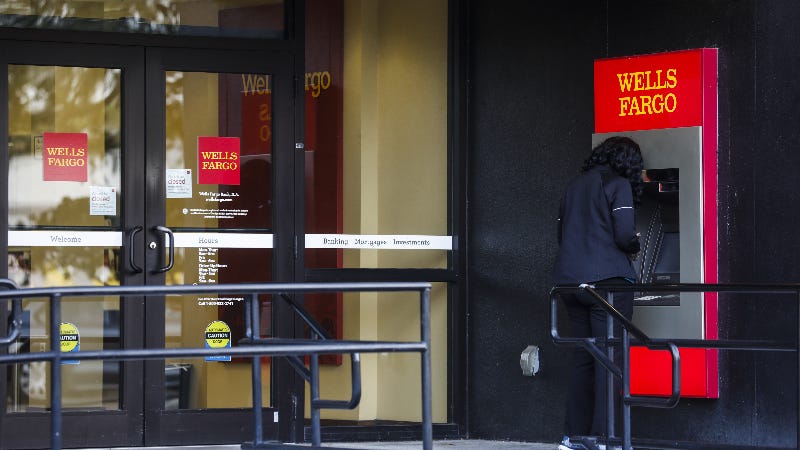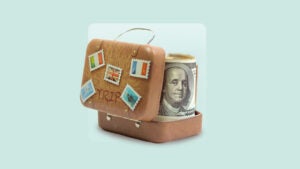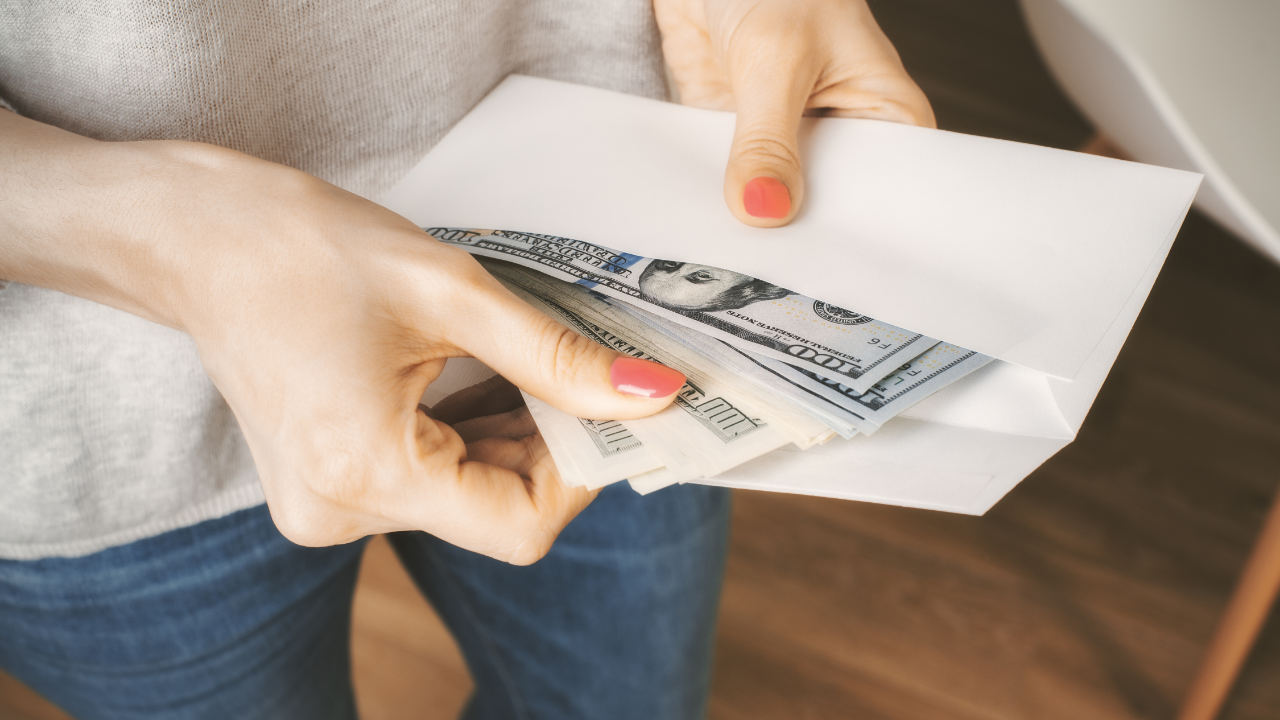Avoid going overboard on cash withdrawals during coronavirus crisis

In this coronavirus-impacted world, many people may be wondering if their money is safe in the bank or whether it’s better to make a mad dash for their cash.
Like toilet paper, cash is one item that Americans seem to be comfortable having around in large quantities. Banks report seeing a steady flow of customers and some have momentarily struggled to meet demands for stacks of cash.
But withdrawing thousands of dollars at once is probably not necessary, analysts say.
“This is not a natural disaster where the electricity’s out, where payment systems are out, where you can’t use other methods of payment or access your money,” says Greg McBride, CFA, Bankrate chief financial analyst. “So there’s not a need to be going overboard and pulling excessive cash out of your account.”
Having too much cash on hand could potentially be risky. Then again, not having enough dollars lying around may also be problematic in the event of an emergency. Here’s how experts say you can best determine the right amount of cash you need and why there’s no need to panic about keeping your money in the bank.
Stay calm
Stockpiling cash in fear that it could somehow run out is not a good idea. For one thing, banks — especially the big ones — are flush with cash. They just keep a certain amount in their branches and lend out a portion to other customers. And in the event that they run out of certain bills temporarily, banks can quickly replenish what’s missing at their regional Federal Reserve bank.
Though the economic forecast may seem somewhat bleak, consumers should remember not to panic. We’re coming off an 11-year bull market, the longest period of economic expansion in history.
“People need to keep in mind this isn’t ’08,” says Kristin McKenna, the managing director and a wealth advisor at Darrow Wealth Management. “This is not a systemic failure of the financial system. This is a completely different animal. But it’s not a failure of the banking system.”
How your money is protected
It’s also worth noting that your money is safer in a bank than in your own home.
Both the National Credit Union Administration (NCUA) and the Federal Deposit Insurance Corp. (FDIC) insure deposits up to $250,000, per account holder for each qualified account type, per insured institution. And it’s possible for even more of your money to be insured. If you bank with certain credit unions, for example, your remaining deposits may be insured through a private insurance fund.
Even if a financial institution fails, money that’s insured by the federal government is protected. A press release from the FDIC says that since its founding, “no depositor has ever lost a penny of FDIC-insured funds.”
The chance of your bank failing is also highly unlikely. FDIC data shows that so far, in 2020, only one bank has failed. In contrast, a decade ago in 2010, around 160 banks failed between the beginning and end of the year.
“If we’re just talking about green money in your hands versus in the bank, there’s no reason for people to think that they need to hold onto physical dollars because there’s any sort of threat of a collapse to the banking system or the liquidity in the market,” McKenna says. “The government is making sure that the plumbing, the banking system, can continue to run smoothly.”
The risky side of withdrawing too much cash
Withdrawing too much cash is risky to an extent.
Not only is the cash in your home not insured by the federal government, but when it’s in your apartment rather than in a high-yield savings account or CD, you’re not earning interest on those dollars. In the short-term, that doesn’t mean much. But in the long-term, you’re potentially missing out on a big chunk of change, depending on how much money you’ve taken out.
Outside of a bank’s secure facilities, money at home is also at risk of being stolen. Similarly, you’ll probably be out of luck if something happens to your home.
“If you have $100,000 hidden under your bed and your house burns down, there’s limits on what insurance will cover, ” McKenna adds.
Of course, it never hurts to have some cash on hand, just in case you’re making an in-person payment and the retailer isn’t able to process cards temporarily or you’re dealing with someone in the service industry who only accepts cash. Otherwise, if you’re stuck at home, having a bunch of cash isn’t going to be of much benefit, McBride says.
There’s nothing wrong with having access to some cash. But for any bills you choose to keep at home, just make sure it’s in a secure, fireproof safe, says Michael Foguth, president and founder of Foguth Financial Group.
How much cash you need depends
When it comes to deciding how much cash to withdraw, it varies based on your personal preference and what’s needed based on your individual circumstances. But taking out more money than usual may not be needed.
“I don’t know that it’s any different from normal,” McBride says. “Maybe for peace of mind purposes you want to have an extra $100 or $200. A lot of that’s going to depend on what your expenses are and who you have to pay. But there’s more downside than upside to carrying excessive cash.”
On the other hand, avoiding cash entirely could be extreme, despite fears that it could help spread the coronavirus. More than one in five respondents (22 percent) in a new J.D. Power survey say they’re planning to use less cash a result of that concern. Medical experts say it’s best to be cautious when handling cash and to wash your hands before touching your face.
What’s more important is keeping a close eye on your finances and budget to determine whether you have enough money in your bank account to cover the basics and emergency savings.
If you do need to venture out to an ATM, it’s best to choose one within your bank or credit union’s network, McBride says. That way, you’re not wasting money on unnecessary fees. And avoid making rash decisions or taking on additional debt, unless it’s absolutely necessary.
Learn more:
- 3 types of coronavirus scams to watch out for
- List of banks offering help to customers impacted by the coronavirus
- Don’t have direct deposit set up during the coronavirus pandemic? Here’s what to do
Why we ask for feedback Your feedback helps us improve our content and services. It takes less than a minute to complete.
Your responses are anonymous and will only be used for improving our website.
You may also like

5 tips for paying unexpected or unplanned expenses

Traveling soon? What to lookout for when exchanging money

Cash stuffing: How this trendy budgeting method works



